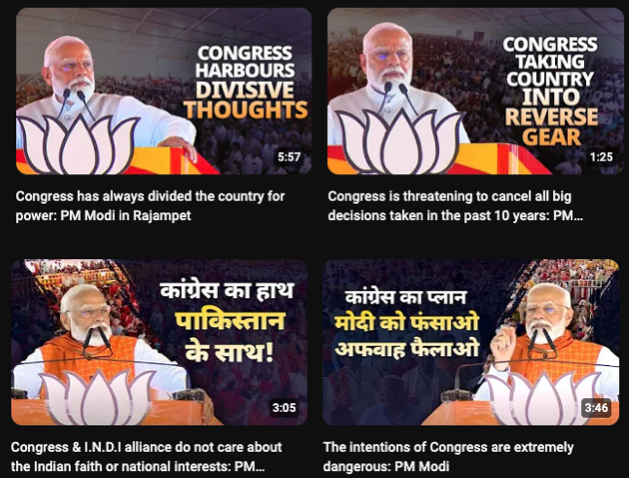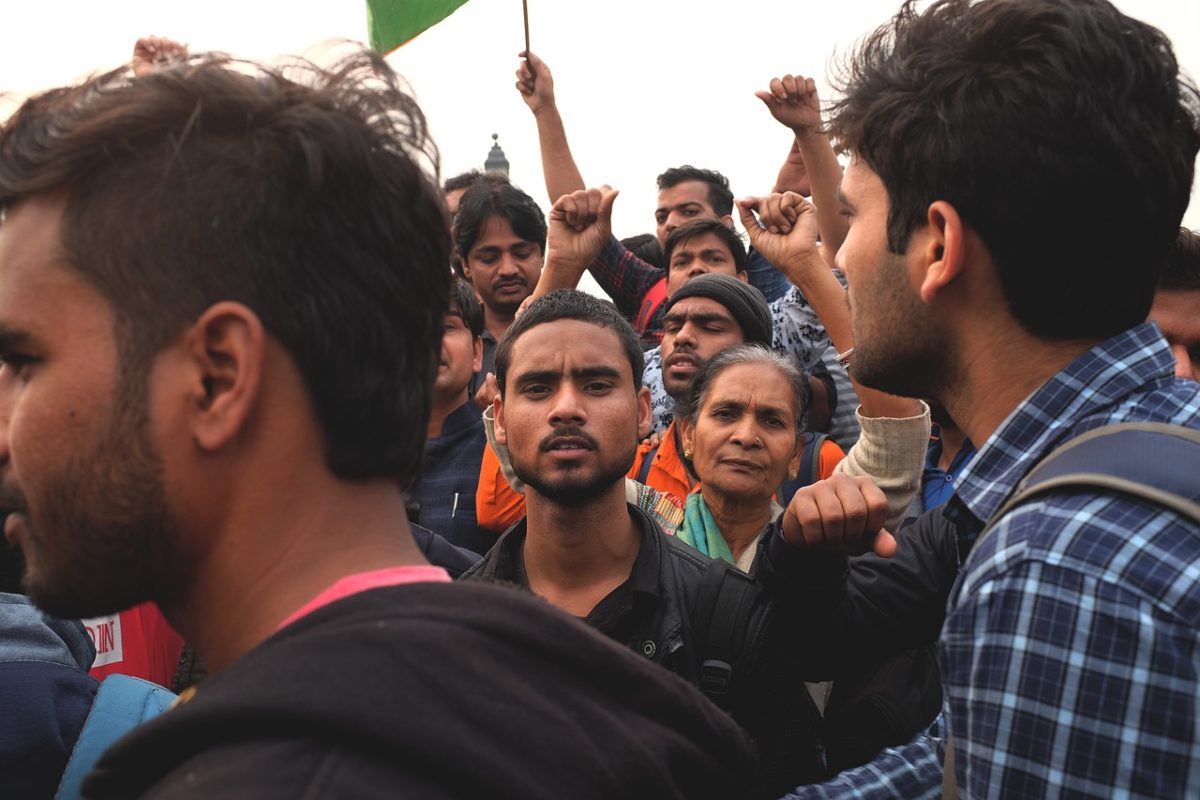Summary
- Congress’s “Nyay Patra” Manifesto: Focuses on social justice with promises for jobs, financial aid for women, and a controversial wealth redistribution survey based on caste and minority status, sparking debates about its potential to deepen social divisions.
- BJP’s “Abki Baar 400 Paar” Campaign: Led by Prime Minister Narendra Modi, targets over 400 seats with a platform emphasising national security, economic growth, and Hindu cultural nationalism. Criticises Congress’s manifesto as threatening national security and stability.
- Controversial Aspects of Congress’s Manifesto: Includes a wealth redistribution plan and a caste census, which have been criticised for potentially fostering economic disincentives and social unrest.
- Modi’s Rhetoric Viewed as Anti-Muslim: Accusations against Congress for pandering to Muslim interests, using divisive language, and linking Congress policies to historical adversaries like the Muslim League.
- Electoral Strategies and Implications: BJP’s campaign focuses on a strong nationalistic approach, while Congress aims for transformative social justice measures. The election presents a stark choice between two contrasting visions for India’s future.
Background
India’s general election began on April 19 and ends on June 1. At its heart is a vivid clash of visions between the two major political forces: the incumbent Bharatiya Janata Party (BJP) led by Prime Minister Narendra Modi, and the opposition Indian National Congress (INC). Each party has unfurled ambitious manifestos aimed at courting a diverse electorate amidst an environment of charged political rhetoric and controversy.

The Congress Manifesto: Ambitious Promises Amidst Controversy
The Congress party’s manifesto, dubbed “Nyay Patra” (Justice Document), presents a bold array of promises targeting key demographics such as the youth, women, farmers, and workers. Some standout pledges include filling 30 lakh government job vacancies, ensuring transparency in government recruitment, and establishing a ₹5,000 crore fund for startups. For women, the manifesto promises significant financial assistance and aims to reserve 50% of new government job recruitments.
However, the manifesto has not been without its controversies. One of the most contentious proposals is the wealth redistribution survey, aimed at identifying the wealthiest individuals to redistribute resources to underprivileged communities based on caste and minority status. This has ignited a fierce debate, with critics arguing that it could foster social divisions and economic instability.
Another aspect that has drawn criticism is the proposed caste census, which aims to map out the socioeconomic landscape of various communities for targeted policies. Critics fear this could exacerbate caste-based divisions rather than bridge them.
BJP’s Campaign and Modi’s Rhetoric: Nationalism and Security
In contrast, the BJP, under Modi’s leadership, has centred its campaign around the theme “Abki Baar 400 Paar” (This Time, Over 400), setting an ambitious goal to win an overwhelming majority. The party’s campaign and Modi’s rhetoric have heavily emphasised national security, economic development, and Hindu cultural nationalism.
Modi has vocally criticised the Congress manifesto, particularly attacking its wealth redistribution and nuclear disarmament proposals. He has labelled these as threats to national security and stability, portraying the Congress as aligned with anti-national elements.

Furthermore, Modi’s speeches have included language that some interpret as anti-Muslim, exacerbating existing communal tensions. He has referred to Indian Muslims with terms like “infiltrators” and linked the Congress with historical adversaries by alleging that their manifesto bears the “stamp of the Muslim League,” the party associated with the creation of Pakistan.
Electoral Strategies and Their Implications
The electoral strategies of BJP and Congress highlight a deep ideological divide. While the BJP focuses on a strong nationalistic approach, promising security and growth under a stable regime, Congress proposes transformative changes aimed at social justice and economic equity. This has moulded their campaigns and framed the narrative for what is shaping up to be a highly polarised election.
As India votes, the outcome of this electoral battle will significantly influence the country’s future policy direction, impacting its socioeconomic fabric and its position on the global stage. The starkly different visions offered by BJP and Congress underscore the critical choices facing the Indian electorate, with each party promising a distinct path towards India’s progress and prosperity.
